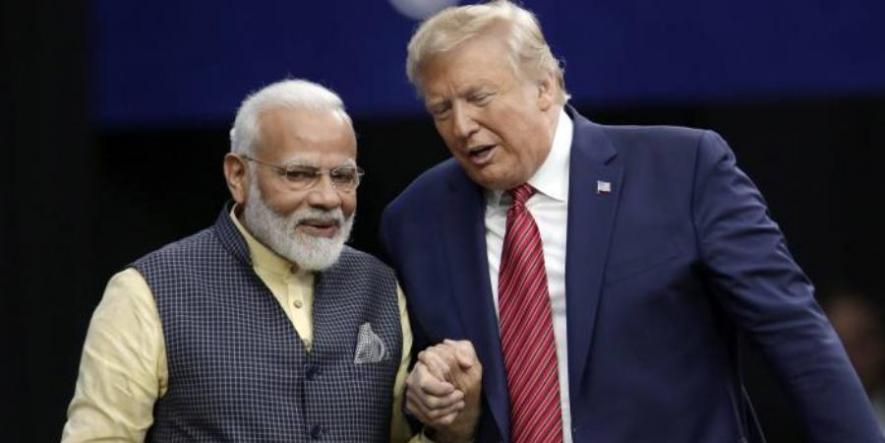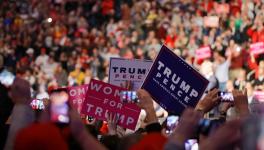How a Mooted Indo-US Trade Deal Could Affect Crucial Indian Sectors

Image for representational use only.Image Courtesy : New Indian Express
Ahead of the United States of America (US) President Donald Trump’s first official visit to India on February 24, activists and experts are expressing deep concerns across sectors cautioning against a long term impact on India’s economy. This comes at a time when both countries are negotiating trade deals and with the US having recently sent trade-related shock-waves to India.
Meanwhile, Trump has hinted that a ‘big’ trade deal is unlikely to happen this year. “We can have a trade deal with India but I’m saving a big deal for the future. I don’t know if it will happen before elections but we will have a big deal,” Trump told the media on Wednesday. He sounded more excited when he said that PM Narendra Modi promised a gathering of seven million people in a planned event during the visit.
After India began extravagant preparations on February 10 for Trump’s visit, the Office of the United States Trade Representative (USTR) issued a notice removing India from its the list of ‘developed countries’, significantly depriving it the previously available special trade concessions. With this move, the USTR exempted India along with several other countries from receiving preferential trade subsidies under its Generalized System of Preferences (GSP) programme.
The GSP programme is a system through which developed countries provide tariff subsidies on import of select products from developing or least developed countries.
According to USTR data, India received subsidies amounting to $260 million in 2018, nearly Rs 2,002 crore.
For this sudden designation change of ‘developed countries’ in its list, the USTR considered G20 membership and countries with a share of 0.5% or more of world trade. However, social development indicators such as infant mortality rates, adult illiteracy rates, and life expectancy at birth are not considered for the designation of countries.
Aside from India, countries like Brazil, Indonesia, Thailand, Vietnam, Argentina and South Africa have been denied preferential subsidies.
“The US imposition of high custom duties on certain products and rolling back of export incentives for Indian exporters under its GSP programme is to pressurise the Indian government to sign a trade pact,” said Benny Kuruvilla, the India head of Focus on the Global South. He told NewsClick that if India signs a preferential trade agreement with the US and both countries further develop that as a comprehensive Free Trade Agreement, it will have a serious impact on India’s farmers and the country’s economy itself.
“Because the US is a successful exporter of wheat, milk products, chicken, pulses, edible oil, corn, fruits (especially apples), vegetables (especially potatoes). If we reduce the import duty on these products, it will have a massive impact on the Indian agricultural sector,” he adds.
Farmers are protesting against Trump’s visit with numerous reports suggesting that the US might put pressure on India to open up poultry and dairy markets aside from their demands of reduction of import duties on agricultural products.
In a statement, the All India Kisan Sabha (AIKS) argued that if India allows imports of dairy products, chicken legs, turkey and agricultural products, nearly 10 crore dairy farmers, a large number of them women and poor farmers, as well as many poultry farmers and workers associated with the dairy and poultry sectors will be adversely affected. AIKS has been campaigning for widespread protests during Trump’s against the impending threat of a trade agreement with the US.
Reports also suggest that the two countries are also negotiating defence and energy related deals. Reportedly, India’s Cabinet Committee on Security had cleared a $2.6-billion deal for 24 MH-60R helicopters for the Indian Navy and for surveillance operations. India’s Petronet LNG Limited and the US based LNG developer Tellurian are also expected to sign a $2.5-billion investment deal for import of up to 5 million tonnes of gas a year.
Considering the aggressive US trade policies with other countries during the Trump regime, any compromise of Indian interests in the deal with the US under will threaten crucial sectors of India’s economy.
Get the latest reports & analysis with people's perspective on Protests, movements & deep analytical videos, discussions of the current affairs in your Telegram app. Subscribe to NewsClick's Telegram channel & get Real-Time updates on stories, as they get published on our website.
























